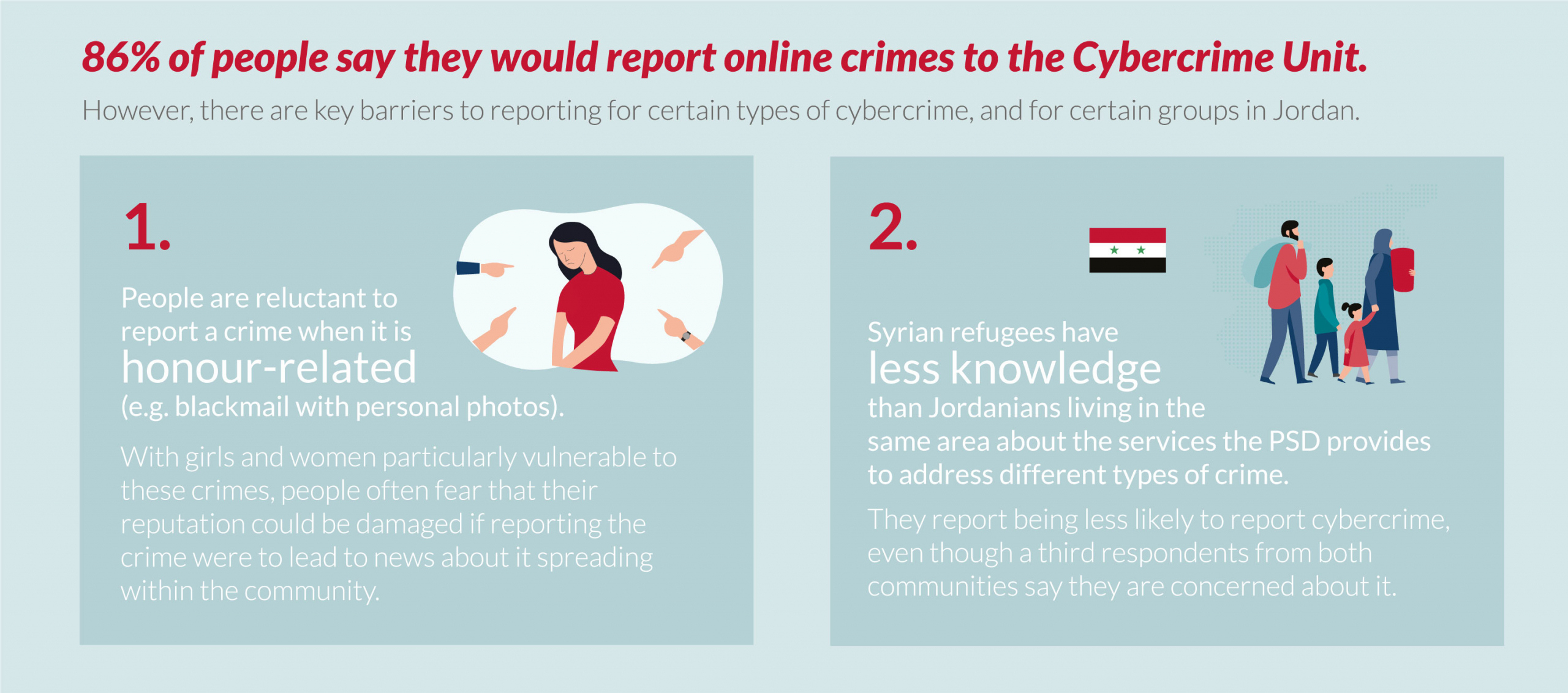Amman youth launch community-led study on impact of online abuse
AMMAN: A group of 12 young men and women set out to explore the impact of cyber incidents in their communities this August, using a methodology that promises to upend the traditional power dynamics around research conducted in areas affected by forced displacement.
The researchers are collecting stories that shine a light on the different ways that people respond to being targeted in cyber incidents. Such incidents include varying forms of online harassment and gender-based violence, which could involve the sharing of private images without consent.
Through their initial conversations with people aged 18 to 30 in east and west Amman, the researchers have identified a host of factors that influence whether or not victims seek help. Already, the role of the families in supporting or making victims fearful of reporting is emerging as an important variable in whether or not victims tell the authorities about the incident, or share it with those close to them.
In a January 2021 survey in Amman and north Jordan, Siren uncovered several barriers to reporting for certain types of cybercrime, and for certain groups in Jordan. For example, people expressed a reluctance to report a crime when it was “honour”-related. Syrian refugees were also less knowledgeable than Jordanians about the different services the Public Security Directorate provides, resulting in them being 24% less likely to report cybercrime.
More research needs to be done to understand the specific reasons for a lack of informing and reporting among different groups. To this end, the researchers have designed a work plan that focuses on capturing the stories and reporting patterns of people living with disability, people with different levels of education, as well as refugees and migrant workers.
“It’s very likely that the answers of people from different groups will be very different,” said Hemam Al Wahedy, 23, a researcher from Jubeiha in Amman. “Men will differ from women, and there will be differences based on culture … People living with disabilities also have trouble reporting crimes directly, so we will look into how we can [better] support them. There are also other marginalised groups that we would like to work with later on, who aren’t covered in this initial research.”
At every stage of the research process, Siren will be mentoring the researchers, guiding them through regular reflection sessions that maximise their learning and ability to apply different data collection and analysis techniques. This aligns with the principles of community-based participatory research (CBPR), which ensure that research is inclusive and serves local priorities and interests.
Having identified the core research topics themselves, the researchers will make use of their existing knowledge and links with communities to better understand the needs of those who are most vulnerable to cyber incidents, and the barriers that exist to reporting them.
“Some of us work with social centres and will do the research through them,” Wahedy said. “For me, I will go through my specific network of connections and ask who’s been exposed to problems on social networking sites, and if they don’t mind participating in the research. So far, I’ve found that a lot of people don’t have a problem [with this].”
Once the data analysis is finalised and the researchers have identified entry points for further action, Siren will explore with the researchers how to design different interventions addressing the identified barriers to reporting cyber incidents.
“This approach places ownership of the research process in the hands of the communities that actually stand to benefit from the research findings and have an interest in using them,” said Rachel Sherwin, Siren’s Research, Monitoring, Evaluation, and Learning lead in Jordan. “We are also seeking to create change on an individual level among the researchers, so they might later use the skills and knowledge gained through this journey in other areas of their lives, whether in their studies, when volunteering, or in the workplace.”








